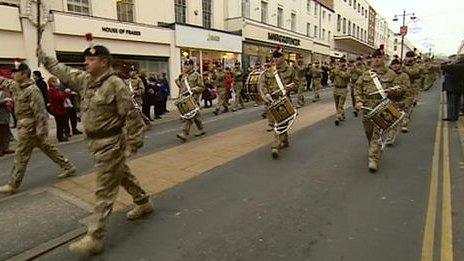Warwick army museum buys World War One soldier plaque
- Published
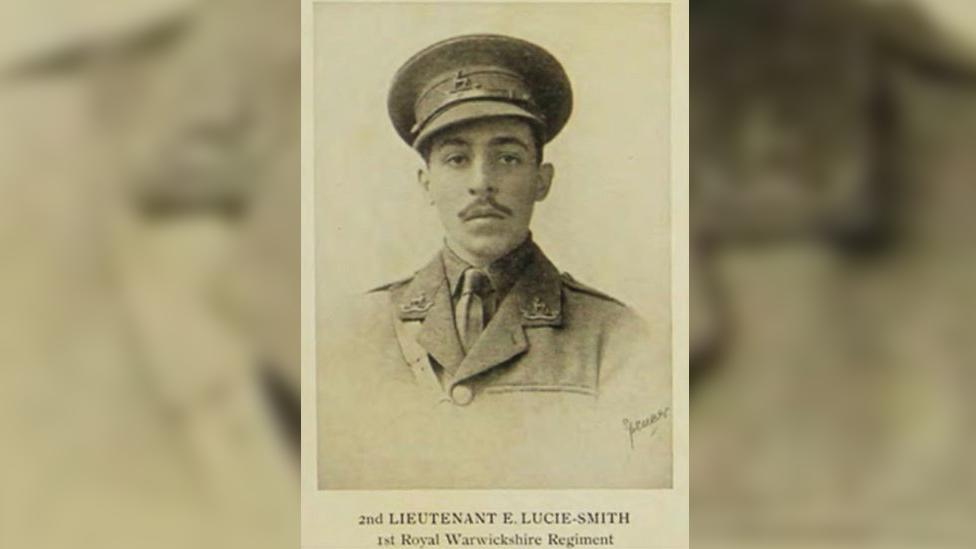
Second Lt Euan Lucie-Smith died in 1915
A museum has spent £10,000 on a plaque commemorating a soldier considered to be the first British regiment officer from an ethnic background to die in World War One.
Second Lt Euan Lucie-Smith, from Jamaica, died while leading his men at the Second Battle of Ypres in 1915.
The Royal Regiment of Fusiliers Museum (Warwickshire) said the plaque led to his place in history being uncovered.
The museum plans to put it on show early next year.
It was given the plaque on Monday, after buying it at auction for £10,540, 13 times the pre-sale estimate.
Second Lt Lucie-Smith, whose father was white and mother black, died on 25 April 1915, a month after arriving in France. He has no known grave.
Previously an officer in the Jamaica Artillery Militia, he was from the 1st Battalion Royal Warwickshire Regiment, a former name of the regiment the museum reflects.
Lt Col John Rice, from the museum, said: "It represents a first. The first officer from an ethnic background to be commissioned into the British Army, to be commissioned into a British regiment, and sadly to die on the battlefield."
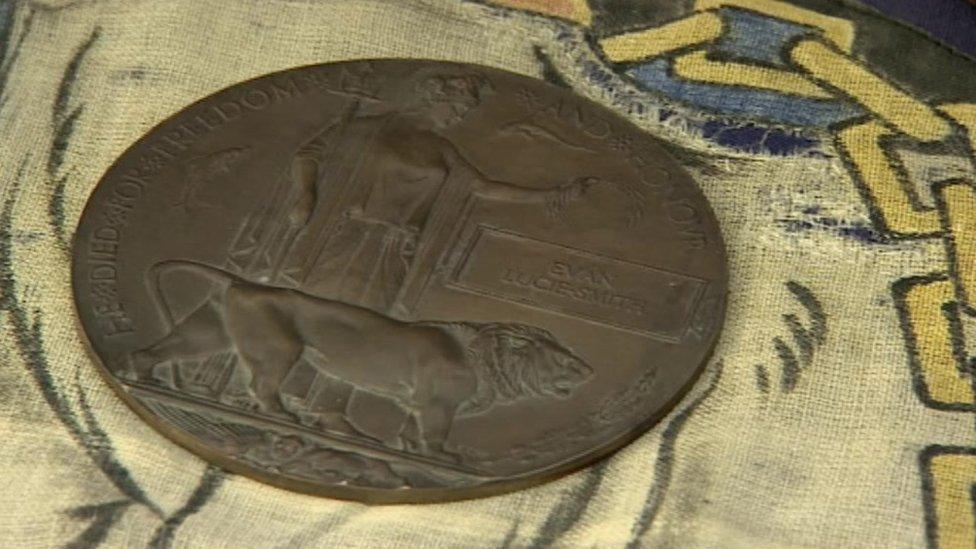
Trustees of the museum, which is currently closed due to Covid-19 restrictions, raised more than £10,000
Walter Tull, a professional footballer, was thought to have been the first black British Army officer killed in World War One.
But the museum said after the plaque was offered for sale, it emerged 2nd Lt Lucie-Smith died three years before Walter Tull was killed in March 1918.
Collector James Carver, who discovered the plaque, put it up for auction.
He said: "It's something I would like to have kept in my collection, but I thought no, actually if this is put up for auction, it's going to get far more publicity than just sitting in a dusty drawer.
"People can hear about his story. It was never about the money, it's about getting recognition for Euan Lucie-Smith."

Collector James Carver offered it for sale
The museum said it thought memorial plaques made for people killed during World War One went to next of kin.
Lt Col Rice said that in World War Two, the 1st Battalion fought with Sikh soldiers and added: "We wish to include more visibility of diversity of soldiers who served in the regiment.
"[The plaque] will be displayed as soon as we humanly can. We need to check out how best to frame it and protect it."
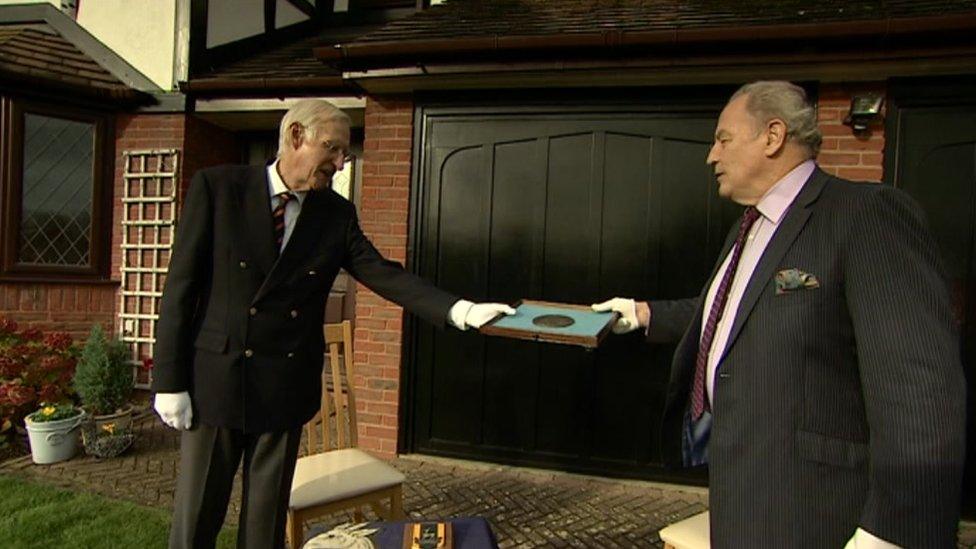
The plaque was handed over in Kenilworth on Monday, after auctioneers Dix Noonan Webb sold it on Thursday

Follow BBC West Midlands on Facebook, external, Twitter, external and Instagram, external. Send your story ideas to: newsonline.westmidlands@bbc.co.uk, external
- Published9 October 2016
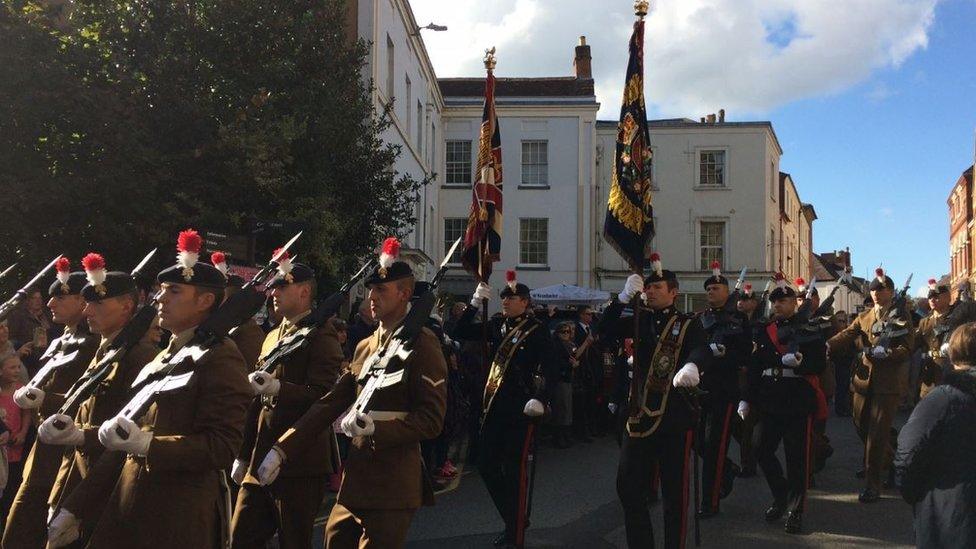
- Published6 June 2014
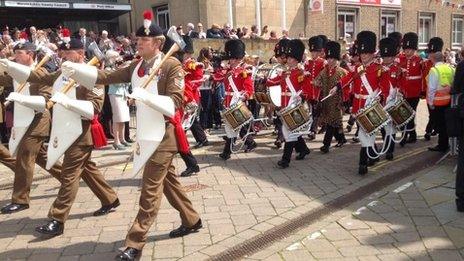
- Published26 November 2013
